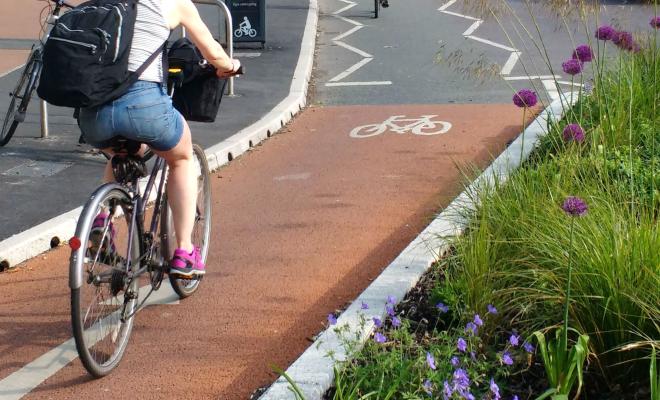22 Mar 2022
Councils operate in slightly different ways depending on which region you're in.
England
There are several types of local authority in England:
- two-tier local authorities (for example, Kent County Council which is subdivided into district councils such as Ashford Borough council and Thanet District Council)
- unitary authorities (eg Cornwall Council or Nottingham City Council)
- metropolitan authorities (eg Liverpool City Council or Birmingham City Council)
- and combined local authorities (eg Greater Manchester Combined Authority).
Some combined authorities, like the West Midlands Combined Authority, have a mayor who has specific powers over local decision-making.
There are also town or parish councils which operate at a level below district councils and unitary authorities. These don’t have the same powers as other local authorities but they are often responsible for smaller, local services. We’ve put together a list of 20 actions parish and town councils can take on the climate and nature emergency.
It’ll help if you find out what kind of local authority your council is so that you know what powers they have. Have a look at this list of councils in England by type to find out.
We've drawn up a table to show you which local authorities can take which actions:
Wales
Wales has 22 unitary authorities (county and county borough councils – also known as "principal councils"). These are not further divided into district councils, like many authorities in England are.
The 22 authorities are responsible for a number of services including planning, education, housing, waste and recycling, and transport. Some of these services (such as education) are required by law and so will be provided by all 22 authorities. Others are provided at the discretion of each authority, so you may find that the services provided vary slightly between each authority. You can visit your local authority’s website to find out which services they provide.
On a more local level, community and town councils provide services in their immediate areas.
Local elections are all held at the same time in Wales, and happen every 4 years. The next elections are scheduled for May 2022.
Northern Ireland
There are 11 local councils in Northern Ireland which are responsible for services including waste and recycling, parks and open spaces, planning and environmental protection and improvement. They are not responsible for education, transport or public housing. Have a look on your council's website to find out which services they are responsible for.
Local elections happen every 4 years in Northern Ireland.
Who's who in your council?
Councils are made up of councillors and council officers. Councillors are elected by you, the electorate, and look after specific wards (areas) for as long as they are elected – usually for 4 years. Councillors will often be aligned to a political party.
Council officers are staff members who are responsible for the day-to-day running of your council. Unlike councillors, they are not elected. They are usually responsible for a certain issue – for example, a Trees Officer or a Housing Officer.
It’s worth knowing that some councillors hold more decision-making power than others.
In theory, the full council – the meeting of all councillors – is responsible for all decisions made in your council. In practice, most decisions are delegated to smaller groups of councillors, either through a cabinet system, a committee system or a combination of both.
In councils that have a cabinet system, decisions are made by the councillor who has been appointed Leader of the Council or the Elected Mayor, along with the other councillors that they appoint to their cabinet.
Councils that have a committee system work in a slightly different way. These councils still have an elected Leader, but many decisions are made by committees (eg the Environment committee) which are made up of councillors proportionate to their political parties’ representation in the council.
Some councils have a hybrid of both cabinet and committee system.
In Wales, all local councils have a cabinet system, with the political party which holds the most seats, or a coalition of political parties or parties and independent members, carrying out most decision making. The Leader of the Council is in charge of the cabinet and will usually be from the dominant political party. There are no elected mayors in Wales.
In Northern Ireland, most councils have a committee system, although a small number do operate with a cabinet system. Councils in Northern Ireland also choose a mayor (or chairperson) and a deputy to carry out ceremonial duties. The mayor and their deputy do not have decision-making power and so are unlikely to be the person that you will need to approach about the Climate Action Plan.
You will be able to find out from your council’s website which system they use.
Who to approach
So now you know who makes decisions in your council, you need to decide who to approach about your Climate Action Plan (or whatever campaign you're working on).
The first thing to remember: councillors and council officers are human beings just like you! They probably came into their roles because they believe in making a difference at a local level.
Councillors aren’t paid for their role and often have other jobs as well as being a councillor, so you may find they're very busy. But it’s also important to remember that they were elected by you – the local people – and so have a duty as well as a desire to do their best for your community, which means you’re already starting with a shared goal. If you can find the right person to talk to and strike up a good relationship you’re already on the right track – even if you still feel you know very little about councils.
So, who should you approach?
Who you’ll approach will depend on your council and whether you already have a pre-existing relationship with a councillor or a friendly council officer. Even if they’re not the right person to speak to, they should be able to point you in the right direction.
If you’re approaching your council with no pre-existing relationship, you can use their website to find out who's best placed to help you. Your council may already have an existing cabinet member or committee chairperson responsible for climate breakdown. If they do, then they’ll be your go-to person. They are likely to have something along the lines of "environment" or "climate" in their title, so have a quick scan through your council’s list of cabinet members or committees to check.
You may also want to see if there are any councillors who have a track record of speaking up on climate breakdown – from putting forward a climate emergency motion, for example. A quick online search of "climate emergency" + "[name of your council]" will help you find whether this is the case.
If you’re struggling to find out who you should speak to, you’re best placed going straight to your council leader – this will help put your group on their radar and they will be able to signpost you to the right person to talk to.
The key thing is to make contact. Even if it’s not the right person initially, it’s great to build up relationships and make contacts. You’ll be able to find all the contact details for your local councillors on your council’s website.
Once you’ve contacted your council, have a look at our guide for lobbying decision-makers to help you out with the next step in your campaign.



